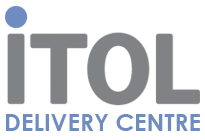
“Come off that computer!”
“You spend too much time on Facebook!”
How many of us parents have said these things? I’m asking you to read my latest thoughts and then ask ‘Do I moan about my kids spending too much time on their gadgets?’.
Generation Z are those born after the year 1994 until 2010. In a few years’ time, they will be joining the workforce and contributing to the economy of the country. Knowing the characteristics of Generation Z will give people a better understanding what these kids are all about, what motivates them and what we, as people managers, need to do now.
Generation Z is the first generation to be born immersed in technology. They were born with PCs, mobile phones, gaming devices, MP3 players and the internet. They have no concept of a life without technology. They can email, text and use computers without any effort. In addition, members of Generation Z can understand and master advancement in technology. This reliance on technology and gadgets how they choose to communicate. They stay indoors playing with technology, rather than playing outdoors as Generation X did.
To Generation Z, social media platforms are THE way to communicate with the outside world. They are not bothered about privacy and are willing to share even the most intimate details of their lives with complete strangers. Every day is shared with Facebook, Twitter, Snap chat etc – news, events, photos, arguments, statements, discussions, problems, meals, quotes, links, videos…the list is endless. They have virtual friends, whom they have never met and yet spend hours playing virtual games with online. Hanging out with friends means talking to them over skype, emails, gaming and texting. They don’t talk on the phone and mealtimes may be spent in silence texting, liking, updating their status and commenting on the status of countless others through a variety of social media sites.
The adverse effect of all this technology is they don’t have communication skills companies may have taken for granted, such as phone skills, verbal debating skills and the art of conversation.
When they get to be working age, they will change the workplace dramatically in terms of their working style and expectations. One of their strengths will be that they can multi task – just watch how they effortlessly flick between social media, organising their diaries and their homework. They may require work that is varied and requires shorter attention span. Managers will need to deliver information in rapid, short burst chunks – just think of the implications for onboarding, training, coaching, mentoring, time management, objective setting, appraising, etc.
So yes, whilst they are able to complete many tasks at once, each task gets their divided attention, so Generation Z could be losing the ability to focus and analyse the more lengthy, complex information.
Some interesting facts about this generation:
- They problem solve via “crowd sourcing” on social media.
- They have spent more on the economy than any generation before them at their age. This is driven by gift cards like iTunes cards that are spent online.
- They are looking for alternative ways to enter their professions as college costs soar.
- They expect to be able to work, learn, and study wherever and whenever they want to.
- Due to the access to a constant barrage of global news, they are more socially responsible than the generations before them.
- They are closer to their parents than the previous generation because they watch the same TV shows, listen to the same music, and play the same video games.
- They have less need for direction because they have access to all the answers, especially for things they are passionate about.
- High self-esteem plus easy-to-use digital tools lead Generation Z-ers to think they can do anything.
- They take for granted the amount of data that they have access to, and the speed in which they can access it. It’s as natural to them as breathing.
- They are the most home-schooled generation in the modern public school era. Home schooling has made this group closer to their families.
- They have become emotionally attached to their digital habits, which keep them online even longer. (Internet addiction was to be classified as a disorder in 2013.)
- Generation Z is considered to be highly creative and collaborative and this will have a significant impact on the way companies work when they join the workforce.
So what does this tell you…?
What will your workplace look like 15 years on…?
Did you know that 65 percent of school kids will work in jobs that don’t even exist today?
- They will be a different kind of professional, not a 40-hour week cube worker, but freelance contractors who solves problems with a particular expertise.
- They are wary of long-term plans. They are not planning on a 10 year career at one place.
- They have the personalities of workers who back their bosses, but they will look for jobs where bosses “have their backs.”
- They will not be as loyal to companies as generations before them. They’ve witnessed the lack of corporate loyalty when their own parents and older siblings lost their jobs during the recession.
- They expect quick results (promotions), and will keep their CV’s handy and up-to-date.
- They are digital and current education is analogue and old methods will not be as effective
- They dislike lecture-test classroom – home schooling is on the increase.
- Their digital world can be customized. They want their education customized, too.
They will be smart adults who can deal with a lot of data and make decisions. Us dinosaurs had better wake up, recognise and engage in this way or become extinct!
Ask yourself …Do I moan about my kids spending too much time on their gadgets?!!
Lisa Haggar
HR Manager
TGW Group
If you enjoyed reading this blog, please share with your friends using the buttons below:



